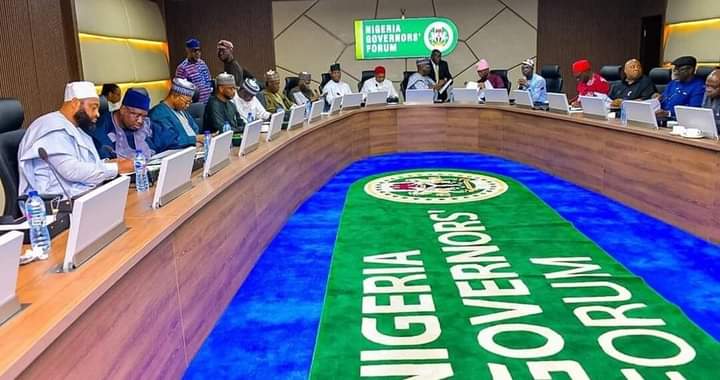Some States across Northern Nigeria have expressed opposition to the recent minimum wage demands put forth by the Nigerian Labour Congress (NLC) and Trade Union Congress (TUC).
The proposed minimum wage of ₦447,000 by NLC and TUC has faced resistance from various states, each presenting their own counterproposals.
The Spectacles provide an overview of the differing proposals, the rationale behind them, and the ongoing discussions regarding the new minimum wage.
The current minimum wage in Nigeria stands at ₦30,000, implemented in April 2019. Recognizing the need for an adjustment due to economic realities, the Federal Government constituted a Tripartite Committee in January to negotiate the new minimum wage, with discussions ongoing in Abuja. The recent public hearings held across six cities aimed to gather input from various stakeholders, including labour unions, state representatives, and civil society organizations.
Overview of Proposals:
- Northwest: The NLC proposed ₦485,000 per month, emphasizing the need for a wage that reflects the cost of living and ensures a decent standard of living for workers.
- Northeast: NLC and TUC chapters recommended ₦560,000 per month, citing economic considerations and the prevailing cost of living.
- Southsouth: NLC proposed ₦850,000 per month, advocating for an inflation-dependent model of wage adjustment and demanding consequences for governors who refuse to comply.
- Southeast: Labour unions proposed ₦540,000 per month, with calls for a bi-annual review and strict enforcement to hold governors accountable for implementation.
- Southwest: The NLC demanded ₦794,000 as the new minimum wage, arguing that it aligns with the economic realities and the rising cost of living.
- Northcentral: NLC and TUC proposed ₦709,000 and ₦447,000 respectively, considering present economic conditions and the need for a living wage.
Northern State Responses:
- Plateau: Proposed ₦60,000 to ₦80,000, citing economic constraints.
- Nasarawa: Requested renegotiation based on financial capability.
- Niger: Expressed willingness to comply with the committee’s decision.
- Bauchi and Adamawa: Proposed ₦45,000 minimum wage.
- Gombe and Taraba: Suggested ₦60,000 minimum wage.
The debate surrounding the new minimum wage in Nigeria reflects the complex interplay between economic factors, labour rights, and governmental responsibilities. While labour unions push for significant wage hikes to meet the evolving cost of living, state governments grapple with fiscal constraints and economic realities.
As discussions continue, finding a balanced solution that addresses the needs of workers while considering states’ financial capacities remains paramount. The outcome of these negotiations will have far-reaching implications for Nigeria’s workforce and its socio-economic landscape.
